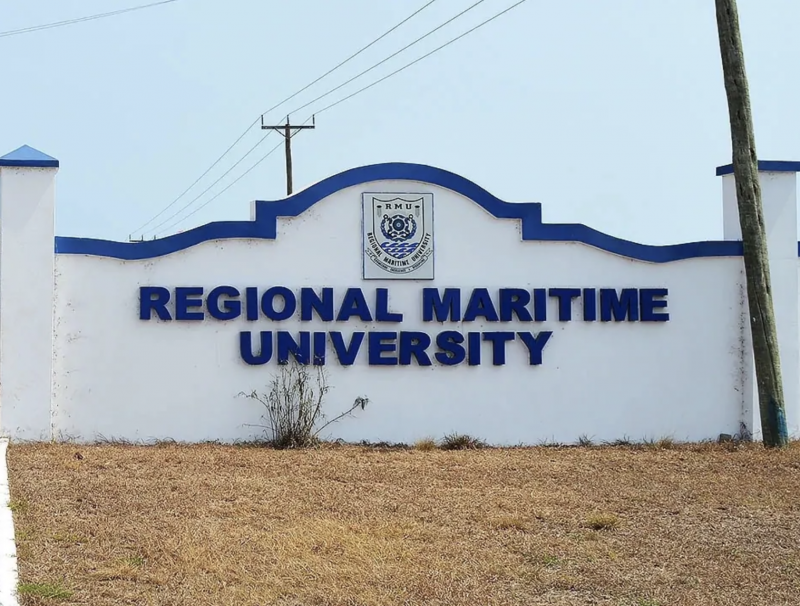
Hydrocarbons account for 75% of ECOWAS exports.
ACCRA,GHANA, 24th September 2020 – Earlier this month on 4th September 2020, Prof Elvis Nyarko, the Vice Chancellor of the Regional Maritime University (RMU), Accra, Ghana, signed, on behalf of RMU, an agreement with the European Union (EU) for a four-year project. The project will strengthen regional operational training on integrated maritime strategy. Training will be conducted at RMU, with funding of EUR 300,000 provided by the EU.
Fish is a key source of high-value protein for 12 of the 15 member states of the Economic Community of West African States (ECOWAS) that have a seafront. The export of hydrocarbons, largely produced offshore, also accounts for 75% of ECOWAS’ total exports. Maritime safety and security, maritime trade and the preservation of the marine environment are therefore crucial for ECOWAS economies and the realisation of the UN Sustainable Development Goals.
“In recent years, the overexploitation of marine resources; rapid degradation of the marine environment through pollution, coastal erosion and rising sea level; and criminal acts at sea have made it urgent that cohesive and coordinated governance responses be found to these complex and interrelated challenges,” said Prof Nyarko. “And yet, security services and law enforcement agencies have to contend with severe constraints in equipment, skills, and lack of smooth functioning in interagency and intra-regional cooperation,” he lamented.
For this reason, RMU will be conducting training to strengthen governance, law enforcement and operational capacities of maritime professionals.
“The training will cover maritime security, maritime environmental security, blue economy security, maritime crisis management, and fisheries security and governance. It will increase the technical capacity of professionals working at the national as well as the regional centres, which are the backbone of the Yaoundé maritime security architecture and strengthen their transnational cooperation. As a result, the maritime professionals will be better equipped to respond to maritime security threats,” said Ms Urszula Solkiewicz, Programme Manager and Coordinator of the Support for West Africa Integrated Maritime Security (SWAIMS) Programme at the EU Delegation to Nigeria and ECOWAS.
Set to commence in January 2021, the training will be conducted by top experts in a six-week period. Trainees will be drawn from:
• senior staff of selected ECOWAS Multinational Maritime Coordinating Centres; • senior officers of maritime and port authorities;
• naval officers;
• law-enforcement officers (maritime police, gendarmerie, customs, maritime agencies or affaires maritimes, coast guards);
• maritime safety, security and environment professionals;
• maritime lawyers, magistrates and prosecutors; and,
• all maritime and port actors (security officers, shipping company agents, ship masters and seafarers, importers and exporters, dockyard personnel, shipyard managers and civil society representatives linked to maritime security).
Cognisant of the regional dimensions of these threats and the critical importance of a democratic, people-centred use and management of maritime resources, the ECOWAS Integrated Maritime Strategy is based on the principles of transnational cooperation and the use of security and non security measures. It aims to strengthen maritime governance for a safe and secure maritime domain.
With assistance from ECOWAS, the Yaoundé Code of Conduct for States has established commitments to safeguard maritime trade in terms of legislation, practices and procedures for the security of shipping and the protection of marine environments. This includes strengthening measures to combat piracy; armed robbery at sea; and illegal, unregulated and unreported fishing. Cooperation will be enhanced through information-sharing between designated focal points and dedicated information-sharing centres. These centres should have the capacity to receive and effectively respond to alerts and requests for information or assistance.
ECOWAS addresses this need for coordination and coherence through SWAIMS, which has two key objectives: (1) to strengthen governance and law-enforcement frameworks, and prosecution and adjudication of maritime crimes; and, (2) to strengthen law-enforcement operational capacities and responses.
“As part of its objectives, SWAIMS will provide technical advice and assistance for the RMU training,” said Mr Serge Rinkel, SWAIMS Team Leader.
For more information:
• RMU Projects Coordinator Ing Augustus Addy-Lamptey, augustus.addy-lamptey@rmu.edu.gh, Strengthening of Regional Operational Training Project.
• SWAIMS
• EU press release

